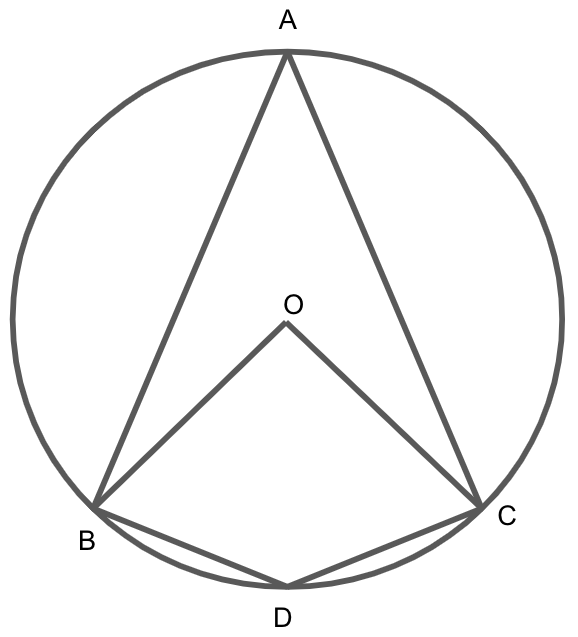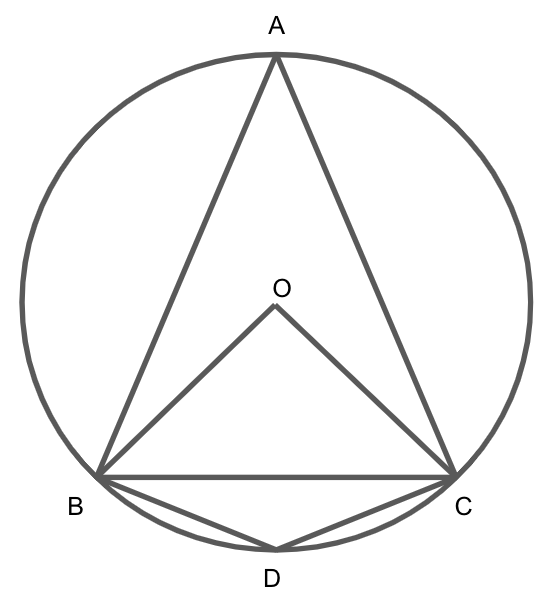Question
Question: In the figure, O is the center of the circle and \[{\text{BA}} = {\text{AC}}\]. If \[\angle {\text{A...
In the figure, O is the center of the circle and BA=AC. If ∠ABC=50∘, find ∠BOC and ∠BDC.

Solution
First we will join BC in the given diagram. Then we will consider triangle ΔABC and use that BA=AC to prove it is an isosceles triangle and the two angles inclined on equal and non-equal lines are same. Then we will use the angle sum property of triangle in the triangle ABC, where the sum of the interior angles is 180∘ and then use the central angle theorem to find the required values.
Complete step by step answer:
We are given that the O is the center of the circle, BA=AC and ∠ABC=50∘.
Joining BC in the given diagram, we get

First, we will consider triangle ΔABC.
We are given that BA=AC, it means that triangle ABC is an isosceles triangle.
We know that in an isosceles triangle, the two angles inclined on equal and non-equal lines are the same.
Then we will use the angle sum property of triangle in the triangle ABC, where the sum of the interior angles is 180∘, we get
⇒∠ABC+∠ACB+∠BAC=180∘
Substituting the value of ∠ABC and ∠ACB in the above equation, we get
Subtracting the above equation by 100∘ on both sides, we get
⇒100∘+∠BAC−100∘=180∘−100∘ ⇒∠BAC=80∘Now according to the central angle theorem, the central angle from any two points on the circle is always twice the inscribed angles from those two points, so we have
⇒∠BOC=2×∠BAC ⇒∠BOC=2×80∘ ⇒∠BOC=160∘Using the central angle theorem again, we get
⇒∠BOC=2×∠BDC ⇒160∘=2×∠BDCDividing the above equation by 2 on both sides, we get
⇒2160∘=22×∠BDC ⇒80∘=∠BDC ⇒∠BDC=80∘Therefore, the measure of ∠BOC is 160∘ and ∠BDC is 80∘.
Note: In solving these types of questions, you should be familiar with the concept of angle of elevation and the tangential properties. Students should not use any other trigonometric functions like sine or cosine of the given angle because the given condition of the problem, which is provided to us, is of the height of the triangle and a base. So, do not take the sum equal to 90∘ instead 180∘, which is wrong.
